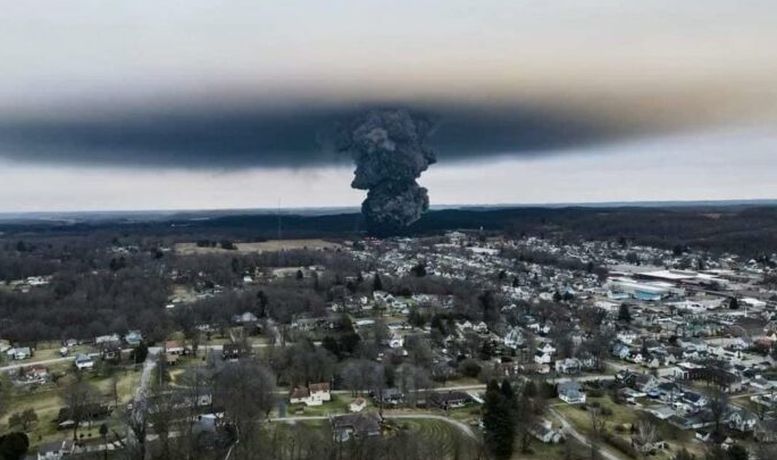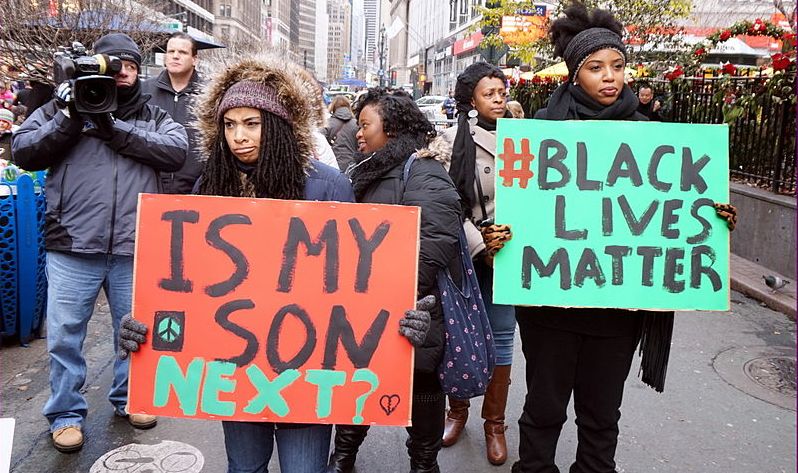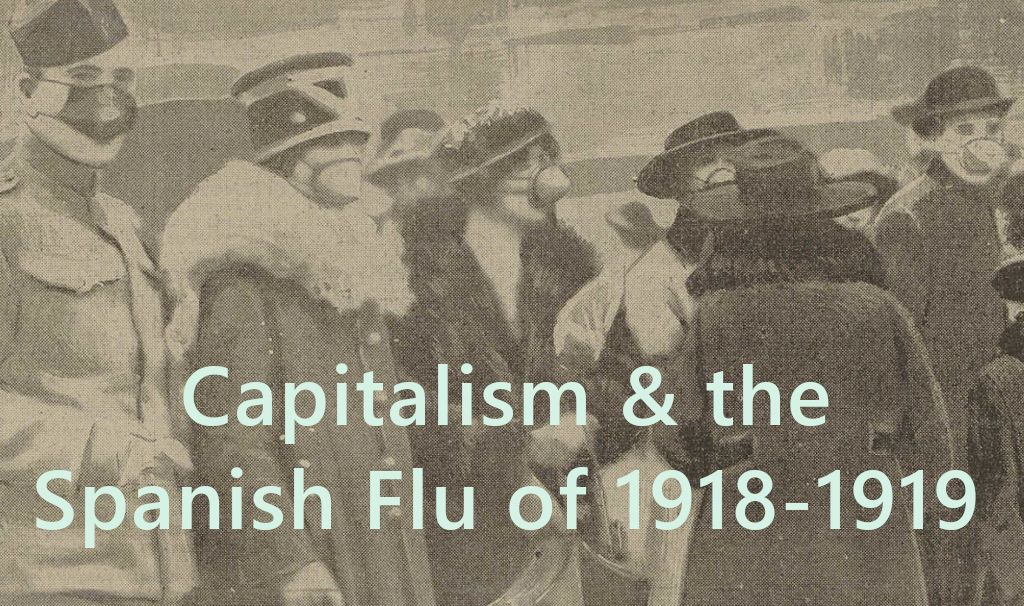Keely Mullen is a member of Socialist Alternative in the US.
Thousands of people in East Palestine, Ohio were told it was safe to return home after a Norfolk Southern train derailment left their town covered in a heavy toxic smoke and flames, and coated in highly flammable chemicals. But far from returning to the town they’d left only days before, residents reported returning home to an apocalyptic world, with thousands of dead fish floating in the river and collapsed animals in their once lively backyards.
Amanda Breshears, who lives 10 miles from East Palestine, woke up one morning to find her five hens and rooster dead in their enclosure. This was just one day after Norfolk Southern released thousands of gallons of toxic chemicals into the air in a “controlled release.” She told NBC News: “If it can do this to chickens in one night, imagine what it’s going to do to us in 20 years.”
From start to finish this disaster has exposed the complete barbarism of the capitalist system. A mass of safety violations and cover-ups going back decades have brought us to this exact moment, where thousands of families now live in what could become a cancerous wasteland.
The Chain of Events: Cost-Cutting to Blame for Derailment
Like many industries, the railroads underwent a massive transformation over past decades as neoliberalism swept the globe. In the early ‘90s, the freight magnates, seeing an opportunity to massively expand their profits, introduced a concept called “Precision Scheduled Railroading” (PSR). They made the trains longer, reduced the staff, scrapped safety inspections, and lobbied the government to whittle down regulations.
As Railroad Workers United – a reform caucus of union railroad workers – correctly points out, nearly everything that makes PSR dangerous contributed to the Ohio derailment.
Before the transition to PSR, trains used to be meticulously blocked, which meant putting the heaviest cars toward the front, and the lightest toward the back. But a key tenet of PSR is dramatically reducing the time that trains spend in the terminals, and properly blocking a train takes time. The practice has effectively been eliminated by rail carriers. The train that derailed in Ohio was not blocked and had 40% of its weight on the rear third of the train, meaning when it derailed the back cars slammed forward creating what’s called a “jackknife.” When the train’s emergency brakes were activated, the inertia from the heavy load in the back of the freight rushing forward caused too much pressure to build up in the middle of the train, sending 38 cars off the track.
At every level, PSR has meant cutting costs – especially labor costs. Since the derailment, a video has emerged of the train with its undercarriage on fire 20 miles before reaching East Palestine. Investigators are now focusing on the probability that this damaged car caused the crash. Due to widespread layoffs of car inspectors, this defective car was allowed to leave the terminal without being inspected.
The dangerously low staffing levels on today’s railroads was a key driver of the pitched battle that took place just this winter between the 125,000 unionized railroad workers and their billionaire bosses. Raising alarms about the dire working conditions on the tracks, including the heightened risk of dangerous derailments, rail workers voted by huge numbers to go on strike for a fair contract. Socialist Alternative reported extensively on the dangers inherent in the working conditions on the tracks, and we called for the full mobilization of the labor movement in support of a rail strike. Yet in an episode best described as a sell-out on steroids, politicians in both major parties – including so-called progressives like AOC – voted to take away rail workers’ right to strike in December, sending them back to work in the exact conditions that has now produced the disaster in East Palestine and will bring more such disasters if not corrected.
Another cost-cutting PSR measure that saved rail CEOs a pretty penny in recent years was hand-delivered by the Trump administration in 2017. After guzzling millions in industry money during the elections, the Trump administration rescinded a provision requiring that rail cars carrying hazardous material be equipped with electronic braking systems – referred to as ECP brakes. These brakes are widely accepted as safer and more efficient, especially on the very long trains common today.
The train in East Palestine did not have ECP brakes. When asked if these brakes would have reduced the severity of this accident, a former senior official at the Federal Railroad Administration answered succinctly: “Yes.”
Carrying out the transition to PSR would be impossible without the willing participation of the politicians on both sides of the aisle who perform their duties as loyal servants of the billionaire class. Over the past two decades the teamwork of railroad lobbyists and corporate politicians has led to widespread deregulation of the industry. This deregulation has allowed profits for the major rail carriers to nearly triple, while safety standards have fallen below the floor.
In 2014, after a series of derailments, the Obama administration proposed new safety regulations for trains carrying hazardous materials. But once industry lobbyists began applying pressure, the administration backed off, agreeing to only regulate trains carrying petroleum, exempting trains carrying most combustible chemicals – including the toxic, cancer-causing chemical now leaking through the soil underneath East Palestine.
All of the deregulation, cost-cutting measures, understaffing, and disinvestment in rail infrastructure over the decades has brought us to this moment. Where Norfolk Southern CEOs can expect to take home more than $13 million a year while families in East Palestine look ahead to years of chronic health problems and potential financial ruin.
Life In East Palestine
The night of the derailment, thousands of people across East Palestine were evacuated from their homes. In a rational society, these families would have been immediately accommodated with free high-quality temporary housing, a free, rapid health check-up, and a guarantee that they would not be responsible for paying the cost of any damages to their homes or health – short or long term – caused by the derailment.
Unfortunately, we do not live in a rational society. After disasters, natural or man-made, families in the US can be almost certain they will have to rely on the generosity of charities or neighbors to get by. They’ll get no help from the government, and they’ll get no help from the corporations that caused the disaster in the first place – or not without strings attached.
Families in East Palestine have reported that they’re afraid to accept even limited relief from Norfolk Southern – the multi-billion dollar Class I railroad – because they’re afraid it will disqualify them from seeking legal damages in the future. Norfolk Southern has boasted that they’ve already helped 900 families weather the costs associated with the evacuation, but that is a paltry fraction of the costs these families are about to incur.
70% of East Palestine residents own their homes, and 60% have mortgages. If experience teaches us anything, this chemical spill could effectively reduce the value of East Palestine homes by around 10% in the short term. This is to say nothing of the long term health care costs these families can expect to be on the hook for.
Norfolk Southern is patting itself on the back for setting up a $1 million charitable fund to support the East Palestine community. This is a wildly insulting number which, if divided by the number of residents, comes out to $212 per person.
They insist they’re committed to sticking with the community and “getting it right,” but Norfolk Southern has already shown a complete lack of regard for the safety of the community through their clean up efforts which, in reality, look a lot more like a cover up than a clean up. Rather than excavating the site of the derailment, thoroughly testing the soil, and determining the extent of potential groundwater contamination, the corporation instead covered up the contamination site with new top soil in order to quickly get trains back on the tracks.
Just like with every other similar chemical spill or contamination event in recent years, the main avenue for East Palestine residents to get any cash will be by going through a lengthy, expensive, and drawn-out legal fight. And the end result is still likely to be far less than they’re owed, with a huge percentage going to ambulance-chasing lawyers.
While a battle in the courts will be essential to making these families whole, a campaign will also have to be launched within East Palestine and the surrounding communities, as well as among all other communities across the country that exist along the tracks. A campaign that ties together all these communities in a joint struggle against the recklessness of industry bosses could put enormous pressure on them to deliver swift relief in the form of cash payments. If a campaign like this were to go one step further and link up with rail workers fighting for safer conditions on the tracks, it could force the rail corporations to reintroduce safety protocols they abandoned in the transition to PSR.
Bring The Railroads Into Public Ownership
While winning any relief from the rail tycoons will be a victory, the dire situation for communities like East Palestine and for rail workers shows the need to go much farther, eliminating profit-chasing from the railroads altogether.
Railroad Workers United adopted a resolution in the fall of 2022 that ended with the following:
“Be it finally resolved that RWU urges all labor unions, environmental and community groups, social justice organizations, rail advocacy groups and others to push for a modern publicly owned rail system, one that serves the nation’s passengers, shippers, communities, and citizens.”
The events in Ohio underscore the importance of this conclusion a million times over. Far from the capitalist promise that private ownership of industry delivers innovation, the North American railroads being in private hands has meant the industry has contracted, become increasingly inefficient (most recently contributing to the ongoing supply chain crises), and become more dangerous for workers, the planet, and communities like East Palestine.
Five days before the derailment in Ohio, the United Electrical, Radio and Machine Workers of America (UE) – a union representing tens of thousands of workers – issued a similar call to the one made by RWU. They wrote: “Our nation can no longer afford private ownership of the railroads; the general welfare demands that they be brought under public ownership.”
The momentum behind the call to bring the railroads into public ownership is hugely important. Socialist Alternative enthusiastically supports this demand and would urge UE and RWU to launch a nationwide campaign to make it a reality.
We need public ownership of the railroads and all other industries that are essential to the functioning of our society but are hamstrung by the thirst for profit, including but not limited to healthcare and housing. It’s only on this basis that we can begin building a future free of disasters like we’re seeing in East Palestine today.




